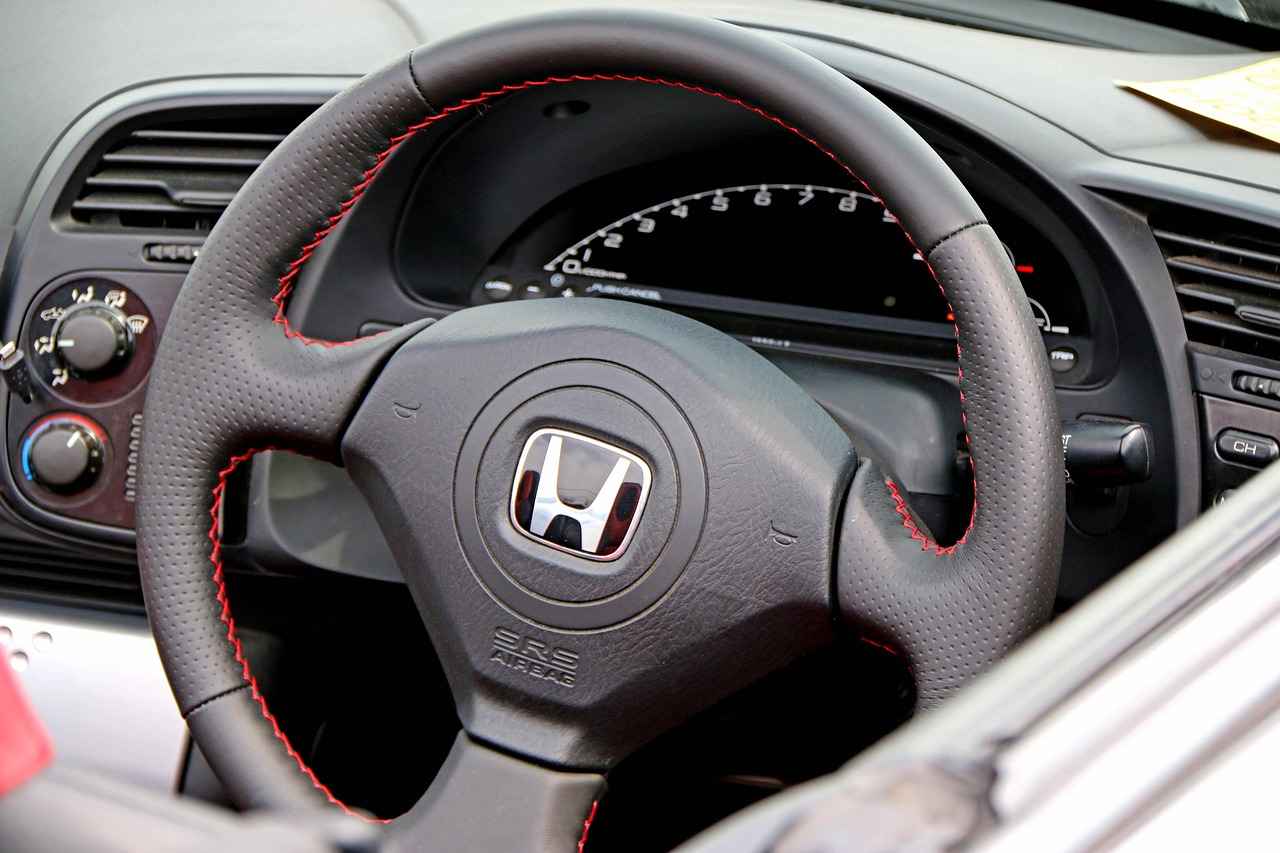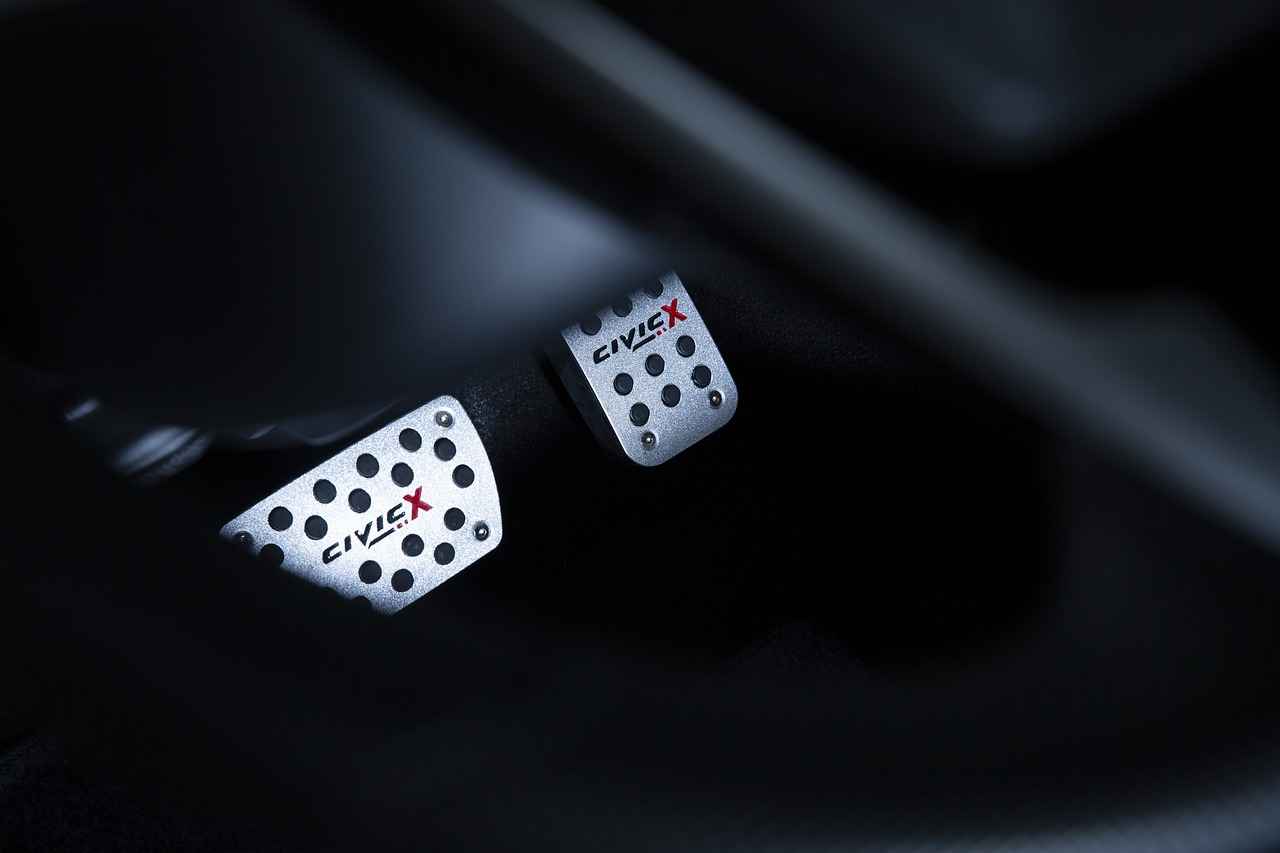The classification of vehicles can often be a source of confusion for consumers, particularly when it comes to understanding whether a car fits into the compact category. This article delves into the classification of the Honda Accord, examining its dimensions, features, and market positioning to determine if it truly belongs in the compact car segment.
To ascertain if the Honda Accord is a compact car, we first need to grasp the defining characteristics of compact vehicles. Typically, compact cars are smaller than mid-size vehicles, designed to offer excellent fuel economy and practicality, especially for urban environments. These vehicles generally feature a length of around 160 to 180 inches and provide seating for up to five passengers.
The Honda Accord has been a staple in the automotive market since its launch in 1976. Initially introduced as a compact hatchback, it has evolved through various generations into a larger sedan that offers a blend of style, comfort, and performance. Over the years, the Accord has garnered numerous awards and accolades, solidifying its reputation as a reliable vehicle.
When evaluating the Accord’s classification, its dimensions play a crucial role. The current model measures approximately 192 inches in length, which is significantly longer than typical compact cars. Furthermore, the Accord boasts a spacious interior and ample trunk space, often leading to debates about its classification.
To better understand the Honda Accord’s position, it’s essential to compare it with other compact cars like the Honda Civic and Toyota Corolla. While the Civic measures around 182 inches, the Corolla is about 182.5 inches long, both of which fall within the compact car category. This comparison highlights the Accord’s larger size and its positioning as a mid-size sedan.
The interior space of the Honda Accord is often cited as one of its standout features. With generous legroom and headroom, the Accord comfortably accommodates passengers, making it more akin to a mid-size vehicle. The cargo capacity also exceeds that of most compact cars, further supporting its classification as a mid-size sedan.
Performance and fuel efficiency are critical factors in vehicle classification. The Honda Accord offers a variety of engine options, including a turbocharged four-cylinder and a hybrid variant. Fuel economy ratings typically range from 30 to 48 miles per gallon, depending on the engine choice, which is commendable for a vehicle of its size.
Safety is a significant consideration for car buyers. The Honda Accord consistently earns high safety ratings from organizations like the IIHS and NHTSA. With features such as adaptive cruise control, lane-keeping assist, and collision mitigation braking, the Accord emphasizes driver and passenger safety, aligning with consumer expectations for modern vehicles.
The market positioning of the Honda Accord is crucial in understanding its classification. Honda markets the Accord as a family sedan, targeting consumers looking for reliability, space, and comfort. This strategic positioning further distances the Accord from the compact car category.
Consumer perception plays a vital role in vehicle classification. Many drivers view the Honda Accord as a mid-size sedan due to its size, features, and overall driving experience. This perception is supported by customer feedback and market research, indicating that most users do not categorize the Accord as a compact car.
Industry experts often weigh in on vehicle classifications. Many agree that the Honda Accord’s dimensions and interior space place it firmly in the mid-size category. This consensus is based on extensive analysis of market trends and consumer preferences.
As automotive trends evolve, so does the Honda Accord. With increasing emphasis on hybrid and electric vehicles, future iterations of the Accord may further redefine its classification. As Honda adapts to market demands, the Accord’s size and features may continue to align with mid-size offerings.

What Defines a Compact Car?
Understanding the criteria that define compact cars is essential for both consumers and automotive enthusiasts. Typically, compact cars are characterized by their smaller size compared to mid-size vehicles. They are designed to offer efficient fuel economy, making them ideal for urban driving where space is limited and traffic congestion is common.
Compact cars usually have a length ranging from 160 to 175 inches, which allows for easier parking and maneuverability in crowded city environments. Additionally, these vehicles often feature a two-box design, which means they have a distinct separation between the engine compartment and the passenger space. This design not only maximizes interior space but also enhances aerodynamics, contributing to better fuel efficiency.
Another critical aspect of compact cars is their fuel efficiency. Many models are equipped with smaller engines that provide excellent mileage, making them cost-effective choices for daily commuting. In fact, many compact cars boast fuel economy ratings exceeding 30 miles per gallon, which is a significant advantage for budget-conscious drivers.
Compact cars also tend to prioritize practicality and functionality. With features such as foldable rear seats and ample trunk space, these vehicles are designed to accommodate various lifestyles, from single commuters to small families. As a result, they often come equipped with modern technology and safety features that enhance the driving experience without compromising on comfort.
In summary, the key characteristics that define compact cars include their smaller dimensions, fuel efficiency, and practical design features. Understanding these criteria is crucial when evaluating whether a vehicle, like the Honda Accord, fits into this category.
The Honda Accord has been a popular sedan since its introduction in 1976. This section provides a brief history of the model and its evolution over the years.
To classify the Honda Accord accurately, we must look at its dimensions. The Accord is known for its spacious interior and trunk, which may challenge its compact classification.
Comparing the Honda Accord to other compact cars, such as the Honda Civic and Toyota Corolla, helps clarify where it stands in the automotive market.
The interior space of the Honda Accord is often cited as one of its strengths. This section analyzes passenger and cargo space to determine its classification.
Performance metrics and fuel efficiency are vital factors for car classification. The Honda Accord’s engine options and fuel economy ratings will be discussed here.
Safety is a significant consideration for many buyers. This section reviews the Honda Accord’s safety ratings and features compared to typical compact cars.
The market positioning of the Honda Accord plays a crucial role in understanding its classification. This section discusses how Honda markets the Accord and its target audience.
Consumer perception can influence classification. This section examines how drivers view the Honda Accord in terms of size and category.
Industry experts often weigh in on car classifications. This section summarizes various expert opinions regarding whether the Honda Accord should be considered a compact car.
As automotive trends evolve, so does the Honda Accord. This section looks at potential future changes that may affect its classification in the coming years.
In summary, this section will synthesize the information provided to answer the central question of whether the Honda Accord fits into the compact car category.

Honda Accord: An Overview
The Honda Accord has established itself as a cornerstone in the automotive industry since its debut in 1976. Initially launched as a compact hatchback, the Accord has evolved into a midsize sedan, renowned for its reliability, comfort, and advanced technology. This article delves into the rich history of the Honda Accord, exploring its significant transformations and milestones over the decades.
In the late 1970s, the Honda Accord quickly gained traction in the market, appealing to consumers with its fuel efficiency and compact design. The first generation set the stage for future models, showcasing Honda’s commitment to quality and innovation. By the 1980s, the Accord had transitioned into a more spacious sedan, reflecting changing consumer preferences for comfort and practicality.
Throughout the 1990s, the Accord continued to gain popularity, consistently ranking as one of the best-selling vehicles in the United States. The introduction of the V6 engine option and various technological advancements, such as anti-lock brakes and airbags, contributed to its growing reputation for safety and performance. Honda’s focus on quality control and customer satisfaction further solidified the Accord’s status as a top choice among families and professionals alike.
Entering the new millennium, the Honda Accord underwent significant redesigns that emphasized a more modern aesthetic while retaining its core values. The seventh generation, launched in 2003, featured a sleeker profile and improved interior materials, enhancing the overall driving experience. This generation also marked the introduction of hybrid technology, showcasing Honda’s commitment to sustainability.
As we moved into the 2010s, the Accord embraced the latest advancements in technology, including advanced driver-assistance systems and connectivity features. The 2018 redesign brought a bolder exterior and a more refined interior, making it a strong contender in the competitive midsize sedan market. The Accord’s reputation for reliability continued to be a key selling point, with many owners praising its longevity and low maintenance costs.
Today, the Honda Accord stands as a testament to Honda’s ability to adapt to changing market conditions while maintaining its core values. With its spacious interior, cutting-edge technology, and strong performance metrics, the Accord remains a popular choice among consumers seeking a dependable and versatile vehicle.
In summary, the Honda Accord has undergone an impressive evolution over the years, transitioning from a compact hatchback to a sophisticated midsize sedan. Its rich history, marked by innovation and consumer satisfaction, has solidified its place as a leader in the automotive industry. As we look to the future, the Honda Accord is poised to continue its legacy of excellence, catering to the needs of drivers around the world.

Dimensions of the Honda Accord
The classification of the Honda Accord often sparks debate, particularly when considering its dimensions. The Accord, a flagship model for Honda, is celebrated for its spacious interior and generous trunk capacity, which raises questions about its categorization as a compact car.
To understand the Accord’s classification, we must first delve into its dimensions. The Honda Accord typically measures around 192 inches in length and offers a width of approximately 73 inches. These measurements position the Accord closer to mid-size vehicles rather than compact cars, which usually fall within a shorter length range of around 175 to 180 inches.
Moreover, the interior space of the Honda Accord is remarkable. With a passenger volume of about 105 cubic feet, it provides ample room for both front and rear passengers. In contrast, compact cars often have a passenger volume of less than 90 cubic feet, making the Accord stand out in terms of comfort and space.
When it comes to trunk capacity, the Honda Accord offers around 16.7 cubic feet of cargo space. This is significantly larger than what many compact cars provide, which typically ranges from 12 to 15 cubic feet. Such a difference not only enhances the practicality of the Accord for everyday use but also challenges its classification as a compact vehicle.
In addition to its impressive dimensions, the Honda Accord incorporates a range of features that contribute to its spacious feel. For instance, the design of the cabin emphasizes an open layout, allowing for better movement and comfort. The materials used in the interior also add to the overall experience, providing a sense of luxury that is often not found in compact cars.
Furthermore, the Honda Accord’s design philosophy focuses on user comfort and practicality. Features such as adjustable seating, ample legroom, and high-quality infotainment systems enhance the driving experience, making it more appealing to those who prioritize space and comfort over a compact design.
In conclusion, while the Honda Accord is marketed as a sedan that competes in the compact category, its dimensions and interior space suggest otherwise. The combination of its length, width, passenger volume, and trunk capacity places it firmly in the mid-size segment. Thus, when considering whether the Honda Accord is a compact car, one must acknowledge its spaciousness and features, which elevate it beyond the typical compact classification.

Honda Accord vs. Compact Car Competitors
The Honda Accord has long been a staple in the automotive industry, known for its blend of performance, comfort, and reliability. To fully understand its position within the market, it is essential to compare it to other compact cars, such as the Honda Civic and Toyota Corolla. This comparison will clarify the Accord’s classification and its appeal to consumers.
Both the Honda Accord and Honda Civic are popular choices among drivers, but they cater to slightly different segments. The Accord is often viewed as a mid-size sedan, while the Civic fits comfortably into the compact car category. The differences in their dimensions are significant:
| Feature | Honda Accord | Honda Civic |
|---|---|---|
| Length | 195.8 inches | 182.7 inches |
| Width | 73.3 inches | 70.9 inches |
| Height | 57.1 inches | 55.7 inches |
The Accord’s larger dimensions translate to a more spacious interior and trunk space, making it a better option for families and those needing extra cargo capacity.
When comparing the Honda Accord to the Toyota Corolla, another well-known compact car, performance and features come into play. The Accord typically boasts a more powerful engine lineup, offering a choice between turbocharged options and hybrid variants. In contrast, the Corolla focuses on fuel efficiency and offers a less powerful engine, which may appeal to budget-conscious consumers.
- Engine Options: The Accord provides more horsepower and torque compared to the Corolla.
- Fuel Economy: While the Accord offers competitive fuel efficiency, the Corolla is often praised for its exceptional mileage.
- Technology Features: Both vehicles come equipped with advanced technology, but the Accord tends to offer more premium features.
The Honda Accord is marketed as a family sedan, emphasizing comfort and space. In contrast, the Civic and Corolla are often highlighted for their affordability and efficiency, appealing to younger drivers and first-time car buyers. This distinction in marketing strategies helps clarify the Accord’s positioning in the automotive market.
Consumer perception plays a crucial role in how the Accord is classified. Many drivers view it as a mid-size sedan due to its size and features. However, some may still consider it a compact option, especially when looking at its price point and fuel efficiency.
Industry experts often weigh in on the classification of vehicles. Many agree that while the Honda Accord offers many features typical of compact cars, its overall size and capabilities align more closely with mid-size sedans. This perspective is supported by various automotive reviews and consumer reports.
In conclusion, comparing the Honda Accord to its compact car competitors like the Honda Civic and Toyota Corolla reveals distinct differences in size, performance, and market positioning. While the Accord may share some characteristics with compact vehicles, its larger dimensions and family-friendly features solidify its place as a mid-size sedan in the automotive landscape.

Interior Space: Compact or Mid-Size?
The Honda Accord is renowned for its spacious and comfortable interior, making it a popular choice among consumers. In this section, we will delve into the specifics of the Accord’s interior space, examining both passenger and cargo capacity to determine whether it aligns more closely with compact or mid-size classifications.
One of the standout features of the Honda Accord is its generous passenger space. With ample legroom and headroom, the Accord comfortably accommodates up to five passengers. The front seats are designed with ergonomic support, ensuring that both the driver and front passenger enjoy a comfortable ride, even on long journeys. In the rear, passengers benefit from significant legroom, often exceeding that of many compact competitors.
The Honda Accord also excels in cargo capacity. With a trunk space of approximately 16.7 cubic feet, it offers more room than many compact sedans, making it ideal for families or those who frequently transport larger items. The rear seats can be folded down, allowing for even greater flexibility in cargo management. This feature not only enhances the practicality of the Accord but also positions it as a strong contender in the mid-size category.
When comparing the Honda Accord to traditional compact cars, such as the Honda Civic and Toyota Corolla, the differences in interior space become evident. While compact cars typically prioritize fuel efficiency and maneuverability, the Accord places a higher emphasis on passenger comfort and utility. This distinction is crucial for consumers who prioritize space and comfort over compact size.
- Family-Friendly: Many Accord owners appreciate the vehicle’s ability to transport families comfortably, often citing the spacious back seat as a major selling point.
- Versatile Cargo Options: Users frequently mention the practicality of the trunk space, especially during road trips or when moving items.
- Comfort on Long Drives: The overall comfort of the Accord’s interior is often highlighted, making it a favorite for long-distance travel.
Industry experts often categorize the Honda Accord as a mid-size sedan due to its dimensions and interior features. According to the Environmental Protection Agency (EPA), the Accord’s size and interior space exceed the requirements typically associated with compact vehicles. This classification is supported by various automotive reviews that emphasize the Accord’s spaciousness and comfort.
In summary, the Honda Accord’s interior space, characterized by its generous passenger and cargo capacity, positions it more closely within the mid-size category rather than the compact classification. Its design prioritizes comfort and practicality, making it an excellent choice for those who value space in their daily driving experience.

Performance and Fuel Efficiency
When evaluating the Honda Accord, two critical aspects come into play: performance metrics and fuel efficiency. These factors are not only essential for determining the vehicle’s classification but also significantly impact consumer choice and satisfaction.
The Honda Accord offers a variety of engine options, each designed to cater to different driving needs. The standard engine is a 1.5-liter turbocharged inline-4, which provides a balanced combination of power and efficiency. With an impressive output of around 192 horsepower, this engine ensures a responsive driving experience while maintaining excellent fuel economy ratings.
For those seeking enhanced performance, the Accord also features a 2.0-liter turbocharged inline-4 engine, delivering 252 horsepower. This engine option is particularly appealing to drivers who prioritize power without sacrificing efficiency. Even with increased performance, this variant achieves a commendable fuel economy, making it a versatile choice for various driving conditions.
| Engine Type | Horsepower | Fuel Economy (City/Highway) |
|---|---|---|
| 1.5L Turbo Inline-4 | 192 hp | 30/38 mpg |
| 2.0L Turbo Inline-4 | 252 hp | 22/32 mpg |
| Hybrid 2.0L Inline-4 | 212 hp | 48/47 mpg |
The Honda Accord Hybrid is another noteworthy option, merging performance with exceptional fuel efficiency. This model incorporates a 2.0-liter inline-4 engine paired with an electric motor, yielding a total system output of 212 horsepower. The hybrid variant excels in fuel economy, achieving an outstanding 48 mpg in the city and 47 mpg on the highway. This makes it an ideal choice for eco-conscious drivers looking for a reliable and efficient vehicle.
In terms of driving dynamics, the Honda Accord is praised for its smooth ride quality and responsive handling. The vehicle’s suspension system is engineered to absorb road imperfections while providing a stable and controlled driving experience. Whether navigating city streets or cruising on the highway, the Accord delivers a level of comfort that enhances its appeal.
Furthermore, the integration of advanced technology plays a significant role in optimizing both performance and fuel efficiency. Features such as the continuously variable transmission (CVT) and various driving modes allow drivers to tailor their experience based on personal preferences and driving conditions.
In summary, the Honda Accord stands out in the competitive automotive landscape due to its robust performance options and impressive fuel efficiency ratings. With a range of engines to choose from and a commitment to innovation, the Accord remains a top contender for those seeking a balance of power and economy.

Safety Ratings and Features
The Honda Accord has long been recognized for its commitment to safety, making it a top choice for many buyers. In this section, we will delve into the safety ratings and features of the Honda Accord, comparing them to typical compact cars to understand how it stands out in this critical area.
Safety ratings are crucial indicators of a vehicle’s ability to protect its occupants in the event of an accident. Organizations like the National Highway Traffic Safety Administration (NHTSA) and the Insurance Institute for Highway Safety (IIHS) conduct rigorous testing to evaluate vehicles. The Honda Accord consistently receives high marks from these organizations, often achieving five-star ratings from NHTSA and Top Safety Pick+ designations from IIHS.
The Honda Accord is equipped with a suite of advanced safety features designed to enhance driver and passenger protection. Some key features include:
- Adaptive Cruise Control: Maintains a set speed while adjusting to the flow of traffic.
- Collision Mitigation Braking System: Automatically applies brakes when a potential collision is detected.
- Lane Keeping Assist: Helps keep the vehicle centered in its lane.
- Road Departure Mitigation: Alerts and intervenes if the vehicle is about to leave the roadway.
When comparing the Honda Accord to typical compact cars such as the Honda Civic and Toyota Corolla, the Accord often outperforms in safety ratings. While compact cars may offer basic safety features, the Accord’s comprehensive safety suite provides added peace of mind for buyers.
In addition to ratings, real-world performance is vital. The Honda Accord has shown strong crash test results, demonstrating its structural integrity and the effectiveness of its safety features. Many owners report feeling secure in the Accord, thanks to its robust build and advanced technology.
Safety is a significant factor for consumers when purchasing a vehicle. The Honda Accord’s reputation for safety contributes to its popularity and consumer confidence. Buyers often cite the vehicle’s safety ratings and features as decisive factors in their choice, leading to higher satisfaction and loyalty.
In summary, the Honda Accord stands out in the compact car segment due to its exceptional safety ratings and advanced features. With a commitment to protecting its occupants, the Accord not only meets but often exceeds the safety standards set for compact cars. This makes it a compelling choice for buyers prioritizing safety alongside performance and reliability.

Market Positioning of the Honda Accord
The Honda Accord has long been a staple in the automotive market, known for its blend of style, reliability, and performance. Understanding the market positioning of the Accord is essential for grasping its classification and appeal. This section delves into how Honda markets the Accord and identifies its target audience.
Honda positions the Accord as a mid-size sedan, primarily targeting families and professionals who seek a balance between comfort and functionality. The marketing strategy emphasizes the Accord’s spacious interior, advanced technology, and safety features, making it an attractive option for those who prioritize practicality without sacrificing style.
One of the key aspects of the Accord’s market positioning is its emphasis on fuel efficiency. In an era where environmental concerns are paramount, Honda has tailored its marketing to highlight the Accord’s hybrid options and impressive fuel economy ratings. This positions the Accord as an eco-friendly choice for consumers who are conscious of their carbon footprint.
| Key Features of Honda Accord | Market Appeal |
|---|---|
| Spacious Interior | Family-friendly |
| Advanced Safety Features | Safety-conscious consumers |
| Fuel Efficiency | Eco-conscious buyers |
| Modern Technology | Tech-savvy professionals |
Honda’s marketing strategy also leverages digital platforms to reach younger audiences. By utilizing social media and targeted online ads, they aim to attract tech-savvy individuals who value connectivity and modern features in their vehicles. This approach reflects a broader trend in the automotive industry, where manufacturers are increasingly focusing on digital engagement to capture the attention of younger consumers.
Additionally, the Honda Accord’s reputation for reliability plays a significant role in its market positioning. Many consumers view the Accord as a long-term investment, which is reinforced by Honda’s strong track record for building durable vehicles. This perception enhances the Accord’s appeal among buyers looking for a dependable car that can withstand the test of time.
Furthermore, Honda’s commitment to safety is a cornerstone of its marketing strategy. The Accord consistently receives high safety ratings from reputable organizations, which reassures consumers about their choice. This focus on safety not only attracts families but also appeals to individuals who prioritize peace of mind while driving.
In summary, the market positioning of the Honda Accord effectively targets a diverse audience, including families, eco-conscious consumers, and tech-savvy individuals. By emphasizing key attributes such as spaciousness, fuel efficiency, safety, and reliability, Honda successfully markets the Accord as a versatile and appealing option in the competitive automotive landscape.

Consumer Perception: Compact or Mid-Size?
The classification of vehicles often hinges on consumer perception, which can greatly influence how a model is categorized in the automotive market. This section delves into how drivers perceive the Honda Accord in terms of its size and category, particularly whether it is viewed as a compact or mid-size vehicle.
Consumer perception is shaped by various factors, including personal experiences, marketing messages, and peer opinions. When it comes to the Honda Accord, many drivers have developed a strong opinion about its classification based on their interactions with the vehicle.
The Honda Accord is often recognized for its spacious interior and comfortable seating. With dimensions that exceed typical compact cars, many consumers instinctively categorize it as a mid-size sedan. The interior space, which offers ample legroom and cargo capacity, reinforces this perception. According to surveys, a significant percentage of drivers describe the Accord as a vehicle that comfortably accommodates families and groups, further solidifying its mid-size classification.
Honda’s marketing strategy plays a pivotal role in shaping consumer perceptions. Advertisements often highlight the Accord’s spaciousness and versatility, appealing to buyers looking for a family-friendly vehicle. This marketing approach emphasizes the Accord’s strengths, leading consumers to associate it more with the mid-size category rather than compact cars.
When comparing the Honda Accord to its competitors, such as the Honda Civic and Toyota Corolla, the differences become more pronounced. While the Civic is often classified as a compact car, the Accord’s larger dimensions create a distinct separation in consumer minds. Many drivers who have experience with both vehicles often express that the Accord feels more substantial and spacious, reinforcing its mid-size classification.
Industry experts frequently weigh in on consumer perceptions of vehicle classifications. Many agree that the Honda Accord’s size and features align more closely with mid-size vehicles. According to automotive analysts, consumer feedback consistently indicates that the Accord is viewed as a practical choice for those requiring more space without stepping into a full-size sedan.
The perception of the Honda Accord as a mid-size vehicle has significant implications for its sales and marketing strategies. As consumers increasingly prioritize space and comfort, Honda’s ability to position the Accord effectively in the market can lead to stronger sales performance. Understanding consumer perception allows Honda to tailor its advertising and marketing efforts to highlight the attributes that resonate most with potential buyers.
In summary, consumer perception plays a critical role in how the Honda Accord is classified in the automotive market. While its dimensions and features suggest a mid-size classification, marketing and personal experiences contribute to a complex view among consumers. Ultimately, understanding these perceptions is essential for both manufacturers and buyers as they navigate the automotive landscape.

Expert Opinions on Honda Accord Classification
The classification of the Honda Accord has been a topic of discussion among industry experts, car enthusiasts, and consumers alike. With its long-standing history and evolution, the Accord has garnered a reputation that often blurs the lines between compact and mid-size vehicles. This section aims to summarize various expert opinions regarding whether the Honda Accord should be considered a compact car.
Many experts agree that the Honda Accord has traditionally been marketed as a mid-size sedan due to its dimensions and spacious interior. According to the EPA classification, vehicles are categorized based on their interior volume, and the Accord consistently ranks in the mid-size category. For instance, the Accord’s interior volume often exceeds that of typical compact cars like the Honda Civic and Toyota Corolla, which solidifies its position in the mid-size class.
However, some analysts argue that the Accord’s size is becoming more comparable to compact cars, especially as manufacturers continue to innovate and develop more efficient designs. The 2023 Honda Accord, for example, has seen a reduction in weight and an increase in fuel efficiency, which are characteristics often associated with compact vehicles. This shift in engineering may lead some to reconsider its classification.
Additionally, consumer perception plays a significant role in how the Honda Accord is viewed in the market. Surveys indicate that many drivers see the Accord as a versatile option that combines the practicality of a compact car with the comfort of a mid-size sedan. This dual perception has led to a debate among experts regarding its classification. Some experts suggest that the Accord’s spaciousness and features cater to families, while others highlight its fuel efficiency and agility, traits commonly found in compact vehicles.
Industry analysts also emphasize the importance of market positioning when discussing the Accord’s classification. Honda has strategically marketed the Accord to appeal to a diverse audience, including young professionals and families. This broad target demographic complicates its classification, as it embodies qualities of both compact and mid-size vehicles.
In terms of safety and performance, the Honda Accord consistently receives high ratings. Experts often cite its advanced safety features and robust performance metrics as reasons why it stands apart from traditional compact cars. The Accord’s engine options provide a balance of power and efficiency, enhancing its appeal to a wider range of consumers.
Ultimately, the classification of the Honda Accord is not a straightforward matter. While many experts advocate for its mid-size designation based on size and interior volume, others highlight its efficiency and market positioning as reasons to consider it a compact car. As automotive trends continue to evolve, so too will the perceptions and classifications of vehicles like the Honda Accord.
In conclusion, the ongoing debate surrounding the Honda Accord’s classification reflects broader changes in the automotive industry. As manufacturers innovate and consumer preferences shift, the boundaries between compact and mid-size vehicles may continue to blur. Experts will undoubtedly keep a close eye on how the Accord adapts to these trends in the future.

Future of the Honda Accord: Trends and Changes
The Honda Accord has long been a staple in the automotive industry, known for its reliability, spaciousness, and performance. As we look ahead, it is essential to explore the potential trends and changes that could influence the classification and design of this iconic vehicle in the coming years.
As consumer preferences shift towards sustainability and technology, the Honda Accord is likely to adapt. Here are some key trends to consider:
- Electrification: With the increasing demand for electric vehicles (EVs), Honda is expected to enhance its hybrid and fully electric offerings, potentially impacting the Accord’s classification.
- Autonomous Driving: Advances in autonomous driving technology may lead to new features in the Accord, positioning it as a leader in safety and convenience.
- Connectivity: The integration of smart technology, including advanced infotainment systems and connectivity features, will likely redefine the user experience in the Accord.
As environmental regulations become more stringent, manufacturers are compelled to innovate. The Honda Accord may see:
- Improved Fuel Efficiency: Stricter emissions standards may lead to more efficient engines or alternative fuel options, enhancing the Accord’s appeal.
- Safety Standards: New safety regulations could necessitate upgrades to existing safety features, reinforcing the Accord’s reputation as a safe vehicle.
Consumer preferences are pivotal in shaping automotive trends. The following factors are likely to influence the Honda Accord’s future:
- Desire for SUVs: As more consumers gravitate towards SUVs, Honda may need to adapt the Accord’s design and features to maintain its market share.
- Focus on Sustainability: Growing environmental awareness among consumers may push Honda to prioritize eco-friendly materials and manufacturing processes.
Technology is a driving force in the automotive industry. The future of the Honda Accord may include:
- Advanced Driver-Assistance Systems (ADAS): Features such as adaptive cruise control, lane-keeping assist, and collision avoidance systems will likely become standard.
- Enhanced User Interfaces: Voice recognition and touchless controls could redefine how drivers interact with their vehicles.
As the Accord evolves, its classification may also change. The shift towards compact SUVs and crossovers could blur the lines between segments. To determine its future classification, we must consider:
- Dimensions and Size: If the Accord grows in size to compete with larger vehicles, it may transition from a compact to a mid-size classification.
- Market Positioning: Honda’s marketing strategy will play a crucial role in how consumers perceive the Accord in relation to other vehicles.
In conclusion, the future of the Honda Accord is poised for significant transformation driven by technological advancements, regulatory changes, and evolving consumer preferences. As these trends unfold, the Accord may redefine its place within the automotive landscape, challenging traditional classifications and setting new standards for what a sedan can be.

Conclusion: Is the Honda Accord a Compact Car?
In evaluating whether the Honda Accord fits into the compact car category, we must consider various factors, including its dimensions, features, and market positioning. The Honda Accord has long been a staple in the automotive industry, known for its reliability and spaciousness. However, the question remains: does it truly belong in the compact segment?
To answer this question, we need to synthesize the information gathered from different sections of our analysis. First, we discussed the defining characteristics of compact cars. Typically, these vehicles are smaller than mid-size cars, focusing on fuel efficiency and practicality, making them ideal for urban environments.
Next, we examined the Honda Accord itself, which has undergone significant evolution since its launch in 1976. While it initially started as a compact offering, the Accord has grown in size and features, often leading to its classification as a mid-size vehicle. This transition raises questions about its current categorization.
When analyzing the dimensions of the Honda Accord, it becomes evident that its spacious interior and generous trunk space challenge its classification as a compact car. In comparison to competitors like the Honda Civic and Toyota Corolla, the Accord stands out for its roominess, which is often more characteristic of mid-size sedans.
Performance metrics and fuel efficiency are also crucial in determining classification. While the Accord offers robust engine options and competitive fuel economy, these aspects align more closely with mid-size vehicles than compact ones.
Safety ratings are paramount for many buyers. The Accord consistently receives high safety ratings, further solidifying its reputation as a family-friendly vehicle, which is typically associated with mid-size cars. Moreover, the market positioning of the Honda Accord plays a significant role in its classification; Honda markets it as a spacious and reliable option for families, rather than a compact vehicle aimed at individual urban drivers.
Consumer perception is another vital factor. Many drivers view the Honda Accord as a mid-size car, given its features and overall size. This perception aligns with expert opinions, which often classify the Accord outside the compact category due to its dimensions and market positioning.
Finally, as automotive trends evolve, the future of the Honda Accord may see changes that could affect its classification. With increasing consumer demand for compact vehicles, Honda might consider adjustments to the Accord to better fit this segment. However, as it stands, the Accord’s current design and marketing strategy suggest it is more appropriately categorized as a mid-size sedan.
In conclusion, after a thorough analysis of the Honda Accord’s dimensions, features, and market positioning, it is clear that the vehicle does not fit neatly into the compact car category. Instead, it occupies a unique space in the automotive market as a reliable, spacious, and family-oriented sedan.
Frequently Asked Questions
- Is the Honda Accord a compact car?
No, the Honda Accord is generally classified as a mid-size sedan. While it offers some compact car features, its dimensions and spacious interior set it apart from traditional compact cars.
- What defines a compact car?
A compact car is typically smaller than a mid-size vehicle, usually offering efficient fuel economy and practicality for urban driving. They are designed to be maneuverable and economical, making them ideal for city dwellers.
- How does the Honda Accord compare to compact cars like the Honda Civic?
The Honda Accord offers more interior space and a larger trunk compared to compact cars like the Honda Civic. While both are popular choices, the Accord caters to those needing more room and comfort.
- What are the performance metrics of the Honda Accord?
The Honda Accord is known for its solid performance, featuring a range of engine options that deliver a balance of power and fuel efficiency. It often outperforms many compact cars in terms of horsepower and driving experience.
- Are safety ratings for the Honda Accord better than those of compact cars?
Yes, the Honda Accord typically receives high safety ratings, often exceeding those of many compact cars. It is equipped with advanced safety features that enhance protection for both drivers and passengers.



